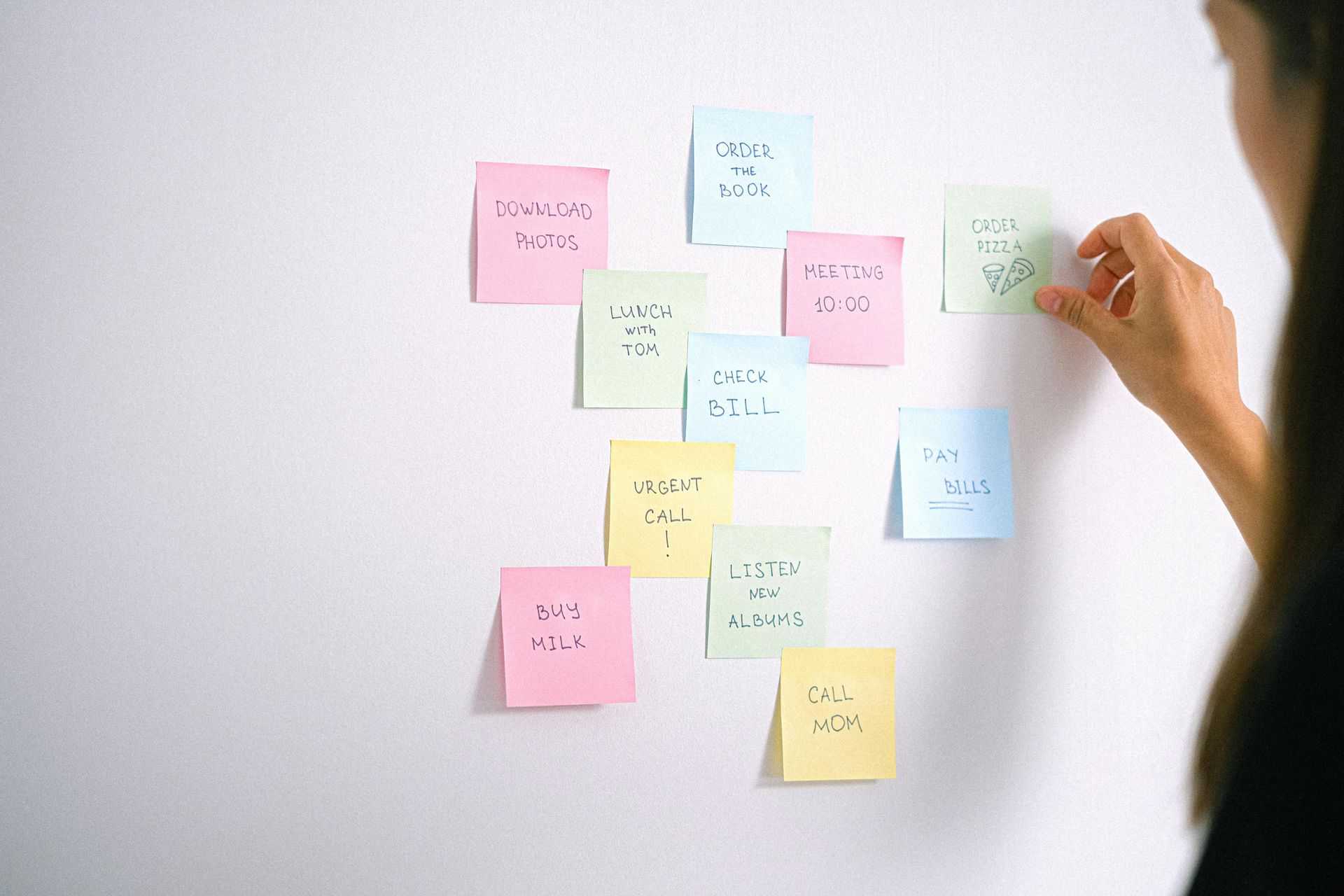(4 min) Why Did I Forget Everything? ADHD and (not) Working Memory

Have you ever spent hours (or days) studying for a test, only to find that just days after the exam all that knowledge seems to have vanished into thin air? If you’re living with ADHD, you’re not alone. In fact, you might be living with one of the most misunderstood aspects of ADHD: working memory challenges.
For years, I wondered what was wrong with me. All through high school and university, I would study, cram, and review until the material finally started to stick. I’d walk into the exam room, do okay (sometimes even well), and feel that rush of relief when it was over. But days later, if someone asked me even a basic question about the material, it was gone. Not just fuzzy—completely erased, as if I’d never seen it before. I never really understood why that happened to me.
It wasn’t until I was diagnosed with ADHD and learned about working memory that everything started to make sense.
Let’s break down what working memory really is, why it’s so central to the ADHD experience, and what you can do to work with your brain (not against it) when it comes to learning, working, and just getting through everyday life.
What Is Working Memory?
Let’s start with the basics. Working memory is like your brain’s “sticky note.” It’s the system that allows you to temporarily hold and manipulate information. Imagine trying to remember a phone number just long enough to dial it, or keeping the steps of a math problem in your mind while you solve it. That’s working memory in action.
Working memory is not the same as long-term memory (where you store facts, experiences, and skills for the long haul) or short-term memory (which is more about holding information for a few seconds). Instead, working memory is the mental workspace that lets you:
- Follow multi-step instructions
- Solve problems in your head
- Stay focused on a task while ignoring distractions
- Remember what you just read so you can answer a question about it
For most people, working memory is invisible... until it doesn’t work the way it’s “supposed to.”
ADHD and Working Memory: The Science
ADHD isn’t just about being “hyper” or “distracted.” At its core, ADHD is a disorder of executive function; the brain’s management system.
Working memory is one of the key executive functions, and it’s one of the areas most commonly affected in people with ADHD.
Research shows:
- People with ADHD often have working memory deficits, even if their intelligence is average or above average.
- These challenges show up in both children and adults with ADHD.
- Working memory struggles can affect academic performance, job success, and daily life skills.
Why does this happen?
ADHD brains have differences in the way they process dopamine and norepinephrine; chemicals that help with focus, motivation, and memory. This means that even with the best intentions, your brain might not be able to “hold onto” information the way neurotypical brains do.
My Story: The Vanishing Act After Every Test
All through high school and university, I would study and take a test and do okay… but days after the test, I would completely forget everything I studied just days before. I’d spend hours highlighting, rewriting notes, and reviewing flashcards. Sometimes I’d even teach the material to a friend, hoping it would help it “stick.” I’d walk into the exam room, answer the questions, and leave feeling like I’d done my best.
But if you asked me even a week later about the content... what was on the test, what the key concepts were, or even the basic definitions, I’d draw a total blank. It was like my brain had wiped the slate clean.
For years, I thought this was a character flaw. Maybe I just wasn’t trying hard enough. Maybe I couldn’t handle stress, or just didn’t care enough. But the truth is, my brain was working overtime just to hold onto that information long enough to get through the test. As soon as the pressure was off, my working memory let go and the information was gone.
Learning about ADHD and working memory was a revelation. Suddenly, I understood why traditional study methods didn’t work for me, and why I needed to find new strategies that actually fit the way my brain worked.
How Working Memory Impacts Everyday Life
You might think working memory only matters in school or on tests, but it’s actually woven into almost every part of daily life. If you have ADHD, you might notice working memory challenges in ways that have nothing to do with academics:
- Following Conversations: Losing track of what someone is saying, especially in group settings or long discussions.
- Cooking: Forgetting the next step in a recipe, even if you just read it.
- Directions: Struggling to remember multi-step instructions (“Turn left at the light, then take the second right…”).
- Reading: Getting to the end of a paragraph and realizing you have no idea what you just read.
- Task Completion: Starting a task, getting distracted, and forgetting what you were doing in the first place.
These aren’t just “little quirks”, they can affect your confidence, relationships, and ability to function in the world.
The Emotional Toll: Self-Doubt, Shame, and “Trying Harder”
One of the hardest parts of living with ADHD and working memory challenges isn’t the forgetting itself, it’s the self-doubt and shame that come with it.
If you’re like me, you’ve probably been told to “just try harder,” “pay more attention,” or “stop being so careless.” I distinctly remember reading through my childhood report cards a few weeks after I was diagnosed with ADHD and realising it was there all along. Comments like "tons of potential but needs to be more consistent", or "great at starting, work on completion", or "needs to pay more attention in class". You might have internalized the idea that you’re lazy, unmotivated, or not living up to your potential.
But here’s the truth: working memory challenges aren’t about effort or willpower. They’re about brain wiring. No amount of “trying harder” can change the way your brain processes information but you can learn to work with your brain, not against it.
The Myth of Laziness
Forgetting isn’t laziness. It’s not a moral failing. It’s not a sign that you don’t care.
ADHD brains use a lot of energy just to keep up with the basics. When your working memory is overloaded, information slips away, not because you’re not trying, but because your brain literally can’t hold onto it.
Imagine trying to carry a dozen slippery water balloons across a room. No matter how hard you try, some are going to fall. That’s what working memory is like for people with ADHD.
Practical Strategies for ADHD and Working Memory
The good news? There are ways to work with your brain’s unique wiring. Here are some strategies (tried and true from my own life and from the research):
Externalize Information
Don’t rely on your brain to hold everything. Use tools to get information out of your head and into the world:
- Sticky Notes: For reminders, to-dos, and key concepts.
- Whiteboards: For visualizing tasks, ideas, or project steps.
- Apps and Alarms: Use your phone for reminders, timers, and checklists.
- Planners and Bullet Journals: Write down appointments, deadlines, and daily tasks.
Chunk Information
Break big tasks or bodies of knowledge into smaller, manageable chunks:
- Study in Short Bursts: Use the Pomodoro Technique (25 minutes work, 5 minutes break).
- One Concept at a Time: Focus on truly understanding one idea before moving to the next.
- Summarize Often: After reading or listening, pause and summarize what you’ve learned in your own words.
Use Multisensory Methods
Engage more than one sense to help information “stick”:
- Speak Out Loud: Teach the material to someone else, or explain it to yourself.
- Draw Diagrams: Visuals can help reinforce memory.
- Record Voice Notes: Listen back to your own explanations.
Repeat and Revisit
Repetition is key for transferring information from working memory to long-term memory:
- Spaced Repetition: Review material at increasing intervals (1 day later, 3 days later, 1 week later, etc.).
- Teach It Again: Re-explain concepts after a few days to reinforce retention.
Minimize Distractions
Working memory is extra vulnerable to distractions:
- Quiet Environment: Find a space with minimal interruptions.
- Single-Tasking: Focus on one thing at a time... multitasking is a working memory killer.
- Background Noise: For some, gentle background music or white noise can help maintain focus.
Accept the Need for Support
- Ask for Instructions in Writing: Don’t be afraid to request written steps or summaries.
- Use Visual Reminders: Calendars, color-coding, and visual schedules can help.
- Checklists: For daily routines, packing, or multi-step tasks.
Reframing Success: Learning That Sticks
If you’ve spent years feeling like you “just can’t remember anything,” it’s time to reframe what success looks like. Success isn’t about memorizing for the test and forgetting everything after.
It’s about finding ways to truly understand and apply what you learn. For many with ADHD, traditional memorization doesn’t work, but deep learning, real-world application, and creative expression do. This is the key for me. If I really learn, really think about real-world application, this is what helps stick. In fact, it is part of why I started writing the blog. To externalize the info and put that learning into a physical space that I could revisit at any time.
Ask yourself:
- What’s the most important takeaway from what I’m learning?
- How can I connect this to something I already know?
- How can I use this information in my daily life?
When you focus on understanding, not just memorizing, more of what you learn will “stick” and you’ll feel less pressure to cram and forget.
Building a Life That Works for Your Brain
Living with ADHD and working memory challenges isn’t about fixing yourself, it’s about building systems that support you.
- Celebrate Small Wins: Remembering one key fact, following a recipe, or completing a task is a victory.
- Advocate for Yourself: Let teachers, employers, and loved ones know what helps you.
- Find Your Community: Connect with others who “get it” online or in-person support can be a lifeline.
- Practice Self-Compassion: You’re not broken. You’re not alone. Your brain is just wired differently.
You’re Not Alone
If you’ve ever wondered why you can study, do well on a test, and then forget everything days later, you’re not alone. Your brain is doing its best with the tools it has. Working memory challenges are a real part of ADHD, and they affect more than just academics. But with the right strategies, support, and self-compassion, you can build a life that works for your brain.
Want more tips, resources, and real talk about ADHD, neurodivergence, and living well with a different brain? Subscribe to the Unqualified Opinion newsletter, join our community, or reach out for support. Your story matters and you don’t have to navigate this journey alone.


